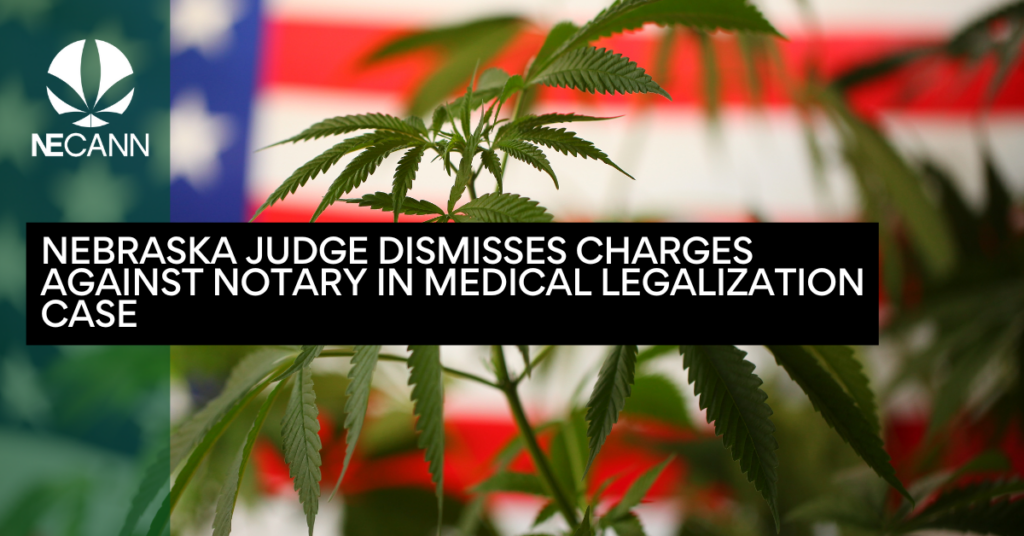A Nebraska judge dismissed all charges against Jacy C. Todd, a notary public accused of improperly notarizing petition signatures during the state’s medical legalization campaign. The dismissal, reported by the Nebraska Examiner, marks a pivotal moment in an ongoing legal battle over the voter-approved measures.
Todd faced 24 counts of “official misconduct,” with prosecutors alleging that she improperly notarized petition pages 24 times. The Nebraska Attorney General’s Office argued that as a public official, Todd knowingly violated her responsibilities, thereby invalidating petition signatures tied to the campaign. However, Hall County Judge Alfred Corey sided with Todd’s attorney, who sought to have the charges dropped.
In his written opinion, Judge Corey clarified the nature of a notary’s role, stating:
“While these duties greatly assist others, notary publics are not public servants who are performing governmental functions. We recognize the critical need for a notary’s duties to be carried out correctly and with integrity. But a notary’s duties, important as they are, hardly implicate responsibilities that go to the heart of representative government. Rather, these duties are essentially clerical and ministerial.”
The decision is a significant development for Todd, but the larger legal challenge continues. Lancaster County District Judge Susan Strong is currently reviewing a case brought by the Attorney General’s Office, which alleges that circulator fraud and notarial misconduct invalidate a substantial number of petition signatures. The outcome of this case will determine whether the ballot measures remain certified.
In November, Nebraska voters approved two medical measures on the ballot: one to legalize medical use for qualified patients and another to regulate the cultivation and sale of products. These measures represent a renewed effort following a 2020 setback when a single medical initiative was invalidated by the courts for violating the state’s single-issue rule for ballot measures.
Under the newly approved measures, qualified patients can access regulated products such as edibles and concentrates. However, smokable products remain prohibited under the law. The qualifying conditions include cancer, chronic pain, epilepsy, multiple sclerosis, PTSD, and other debilitating conditions. The measures also allow the Nebraska Center for Cannabis Research to add more medical conditions to the list.
While the charges against Todd have been dropped, the broader legal case could still affect the future of the medical program. If the court finds evidence of invalid signatures or procedural misconduct, the measures could face additional challenges despite their voter approval.
This ruling highlights both the legal complexities surrounding ballot initiatives and the growing momentum for medical access in Nebraska.



